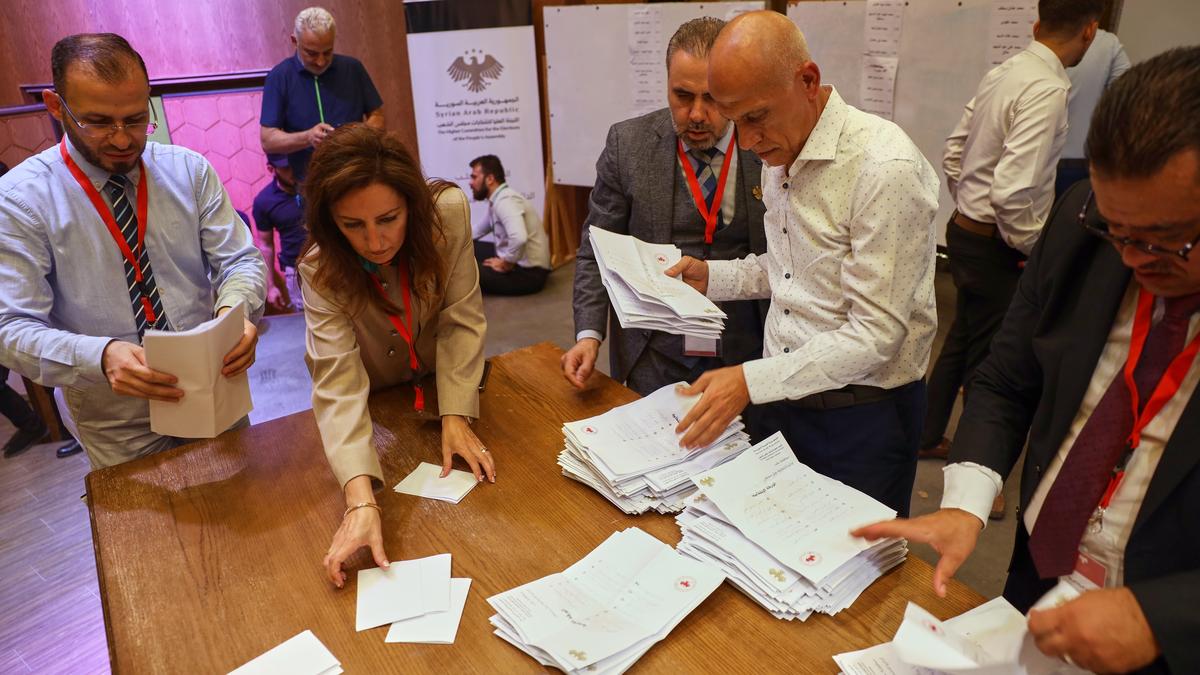When the world leaders gathered in New York for the 80th session of the U.N. General Assembly, Syrian President Ahmed al-Sharaa’s address was among the standout moments. It was the first time in nearly 60 years that a Syrian leader was addressing the U.N.
Mr. al-Sharaa’s speech came weeks ahead of elections in Syria. Mr. al-Sharaa, a former al-Qaeda jihadist, has claimed that this election will facilitate bringing together a transitional government in place. Citing the absence of the required infrastructure for a popular poll, the elections are being conducted using a tightly-defined electoral college system with several pre-conditions. The elections, though not representative, will usher Syria into a new political scenario after decades of the Ba’ath party rule.
One of the oldest-inhabited regions in the world, Syria has had a fraught relationship with democracy. Over the years, as power has changed hands, the country’s political future seems to have slipped further away from the hands of Syrians.
The modern Syrian state and establishment of Ba’ath rule
The grounds for the existence of the modern Syrian state can be traced back to the early 20th century. Just as the First World War wound down, the Great Arab Revolt of 1918 shook the region, bringing an end to centuries of Ottoman rule. What followed was the division of territories among the French and the British authorities, and subsequently, the Sykes-Picot agreement of 1916 was implemented to enable France to secure control over the Greater Syria region.
By 1946, however, Syria declared independence from French control and Sunni leader Shukri al-Quwatli took over the reigns as the first President of independent Syria.
What followed was decades of military coups and counter-coups, as regional and military discontent fo
Continue Reading on The Hindu
This preview shows approximately 15% of the article. Read the full story on the publisher's website to support quality journalism.
